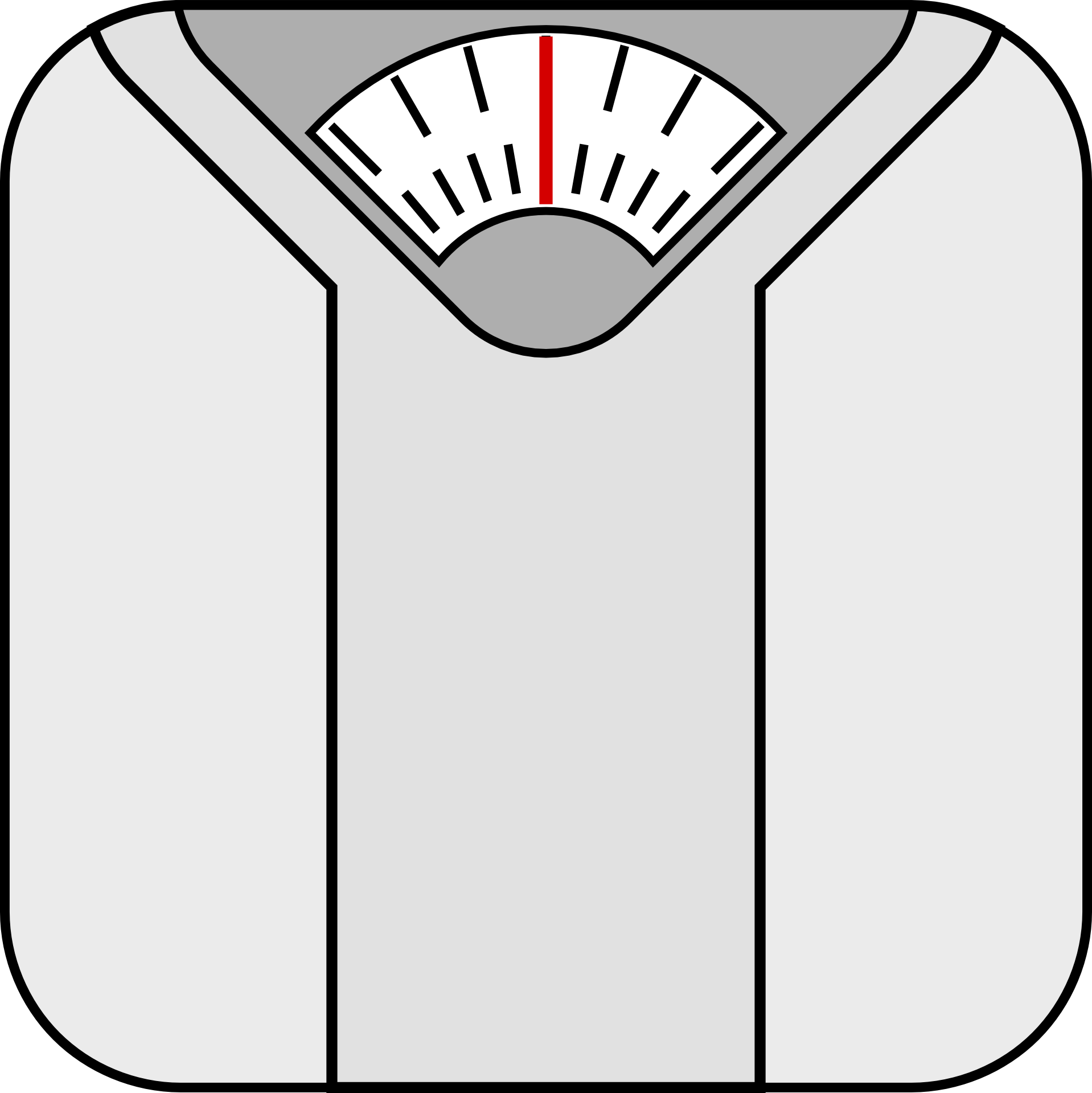Table of Contents
Kids come in various shapes and sizes. So, how much should a seven-year-old weigh? The average 7-year-old, boy or girl, weighs around 50 pounds. Many children, however, are not “average.” It is preferable to use BMI as a measure of a child’s growth because it accounts for weight as well as height.
Concerns about a child’s weight are normal, but it is important not to obsess over it. If you are truly concerned, consult a doctor to ensure your child receives proper nutrition. Continue reading to learn how much should a seven-year-old weigh.
The Average Weight of a 7-Year-Old
How much should a seven-year-old weigh: A 7-year old’s average weight is around 50 pounds. This holds for both boys and girls. Another point to consider is whether your child has just turned seven or is approaching the age of eight.
This average weight is based on the average height of a 7-year-old, which is 4 feet (48 inches), but not all 7-year-olds are this tall. Here is where we run into trouble.
If your 7-year-old is shorter than 4 feet, it is normal for him or her to weigh less.
When you take your kid to the doctor, they will tell you what percentile he or she is in. They will tell you every time. So, if a child is 7 years old and goes to the doctor, the 50th percentile is 50 pounds.
Even with a healthy weight, there is some wiggle room. Just like adults, there are many different shapes and sizes of children. Don’t worry if your child is a little less or a little more than the average.
However, this weight might not be your child’s best goal. Height is something that needs to be taken into account. Worried parents may think this is the case.
If a child is 7 and weighs more than 50 pounds, that doesn’t mean he or she is obese or overweight. How much a child should weigh depends a lot on how tall they are.
When you check on your child’s weight, the health of your child is the most important thing to consider. A healthy child doesn’t have to have a round stomach. On the other hand, you can’t be sure that a 7-year-old is getting all the right nutrients just because he or she is 48 inches tall and 50 pounds.
Body Mass Index, or BMI, is a great way to determine if your child is at the ideal weight.
Using the Body Mass Index

A body mass index (BMI) is a tool invented by Lambert Adolphe Jacques Quetelet.
Because height is included in the equation, using this to determine the normalcy of your child’s weight is more efficient than simply stating the average weight of a 7-year-old.
This index is the best way to determine if your child is developing normally. According to Livestrong, the CDC recommends using body mass index (BMI) to decide whether a child’s weight is normal. BMI takes into account both the child’s height and weight. Because a child’s gender influences healthy BMI ranges, separate charts are used for boys and girls aged 2 to 20.
So this index attempts to categorize people based on their height, age, and weight. There are four weight categories: underweight, normal weight, overweight, and obese.
This system isn’t perfect because it doesn’t account for muscle mass versus fat mass. Muscle is denser than fat and weighs more. However, doctors still use BMI to determine whether or not a child is overweight.
Instead of simply providing a percentile based on weight, a doctor may administer a test to your child at the doctor’s office.
The BMI test is not a diagnostic test. A quick BMI check on your child and finding out he or she is overweight does not mean he or she has a disease.
According to the CDC, a child may have a high BMI for age and gender. Still, a health care provider would need to perform additional assessments to determine if excess fat is a problem.”
The BMI is a useful tool, but it should not be used to shame oneself.
Some people recommend taking the BMI test with your child to make them feel less judged and more like it is a tool and a cool calculation process.
If you have any concerns about your child, always consult with a healthcare professional. While searching online and using calculations are helpful, your child is an individual, and getting a specific answer will be more helpful and accurate.
How much should a seven-year-old weigh: Why Weight is Important?

The Center for Disease Control and Prevention says that it is important to use BMI to check a child’s weight because problems related to weight are common and dangerous. They say, “Children with a lot of body fat can get diseases related to their weight and have other health problems, and being too thin can also cause health problems.”
Weight problems are spreading like wildfire around the world. Obesity is more common than ever, and many kids struggle with it. The CDC says that more than 13 million children in the United States are overweight.
But putting too much emphasis on weight is also bad. Studies have shown that parents who criticize their child’s weight may hurt them more than help them.
Being underweight is also a problem. Without adequate nutrition, the body can struggle to function. The following are some of the consequences of being underweight:
- anemia
- malnutrition
- low immunity
- growth and development issues
As a result, there must be a good balance between the two. Children are not always in control of what they put into their bodies, which is why parents must be good role models.
What to Do If Your Child Is Not in the Ideal Weight Range

How much should a seven-year-old weigh: If your 7-year-old is not in the ideal BMI range, the best thing to do is not overreact or blame a child for his or her weight. Consult a doctor to find out any possibility of illness or other issues.
Professionals advise discussing bodies in terms of health rather than weight. According to a study discussed in this New York Times article, parents should avoid discussing weight with their children because it can negatively impact them later in life.
The most important thing to consider when checking your child’s weight is overall health.
Instead, this study suggests that parents should be loving and accepting of their bodies and teach more by example unless a child brings it up themselves.
Healthy food at home and eating together is a great way to help a child lose weight and be healthier. Eating with others has been shown to lower the risk of eating disorders later in life.
Also, exercise with your kids. Show them that playing outside and staying active is fun, not a chore. It works for both underweight and overweight children.
What to Do If Your Child Is Obese?

1. Set attainable goals for your child.
How much should a 7-year-old weigh: If your child is still growing, you can take advantage of this by aiming to maintain rather than lose weight. This is more attainable, and the increase in height will help to even things out on their own. You can also set a simple goal, such as losing one pound in a week; this is attainable and will not place undue pressure on your child.
2. Encourage Your Child to Exercise
Physical exercises such as jogging, football, swimming, or simply taking the stairs can be extremely beneficial. Your child will burn calories while also developing social skills.
3. Make Healthy Eating Choices
Assist your child in developing healthy eating habits. Include whole foods and fruits in your diet rather than pre-processed foods or fruit juices high in sugar. When preparing meals for your child, look for low-fat choices such as skim milk and yogurt.
4. Motivate Your Child with a Reward System
How much should a 7-year-old weigh? Now that you know the answer, you might want to think about a reward system if your child is overweight to encourage him or her to keep healthy habits.
Every time your child eats well, give him or her a small gift. Don’t give your child food as a reward.
5. Work with Your Pediatrician
Check your child’s weight and blood, and make sure your pediatrician keeps an eye on the situation. Work with your child’s pediatrician to find the best way for him or her to lose weight.
What to Do If Your Child Is Underweight?
How much should a seven-year-old weigh, and what to do if your child is underweight? Being underweight means that the body isn’t getting enough nutrients. This can hurt the child’s physical, mental, and emotional development. Because of this, you must deal with the situation correctly.
- You should help your child gain weight by giving them foods that are not just full of empty calories but also have a lot of nutrients. Protein, carbs, and fats are all important. Eggs, peanut butter, hummus, full-fat milk, and cheese are all good protein sources. Whole wheat bread, pasta, and potatoes are good sources of carbohydrates, and avocados, nuts, and seeds are full of healthy fats. Your child will healthily gain weight with these.
- You should also ensure your child doesn’t fill up on water, juice, or other drinks during meals. This will leave less room for the food.
- Talk to your child’s pediatrician to ensure there aren’t any underlying health problems that make your child thin.
Final words: How much should a seven-year-old weigh?
Parents often worry about how much their children weigh. There is no exact number for how much a 7-year-old should weigh, but you can look at weight ranges that vary by gender and height.
FAQs: How much should a seven-year-old weigh
1. How Much Should a Seven-Year-Old Weigh?
Weight Range
You can use the CDC growth chart to see if your child is at a healthy weight (Centers for Disease Control and Prevention). Based on their height and gender, the chart shows the weight ranges for children ages 2 to 20.
The chart says that a 7-year-old boy’s normal weight is between 41 and 68 pounds, and a 7-year-old girl is between 40 and 69 pounds.
Body Mass Index
BMI takes into account a child’s height. It provides a comprehensive picture of what constitutes a healthy weight. The CDC also has a BMI chart for children.
The chart says that a boy’s weight is normal if his BMI is between 12.7 and 17.4, and a girl’s weight is normal if her BMI is between 13.5 and 17.6.
How much should a seven-year-old weigh? Now that you know the answer, it’s important to remember that every child’s healthy weight range is different. Talk to your child’s doctor about any questions or worries you have, and do what the doctor says to help your child get to a healthy weight.
2. What is the average height of a 7-year-old?
A child who is 7 years old is usually 48 inches tall. It’s 4 feet high. Children vary in how tall they are.
3. What is BMI in the normal range for a 7-year-old?
If your BMI is between 13.5 and 17.5, you are a normal weight. For a 7-year-old of average height, the “normal weight” range is between 44 lbs and 58 lbs.


